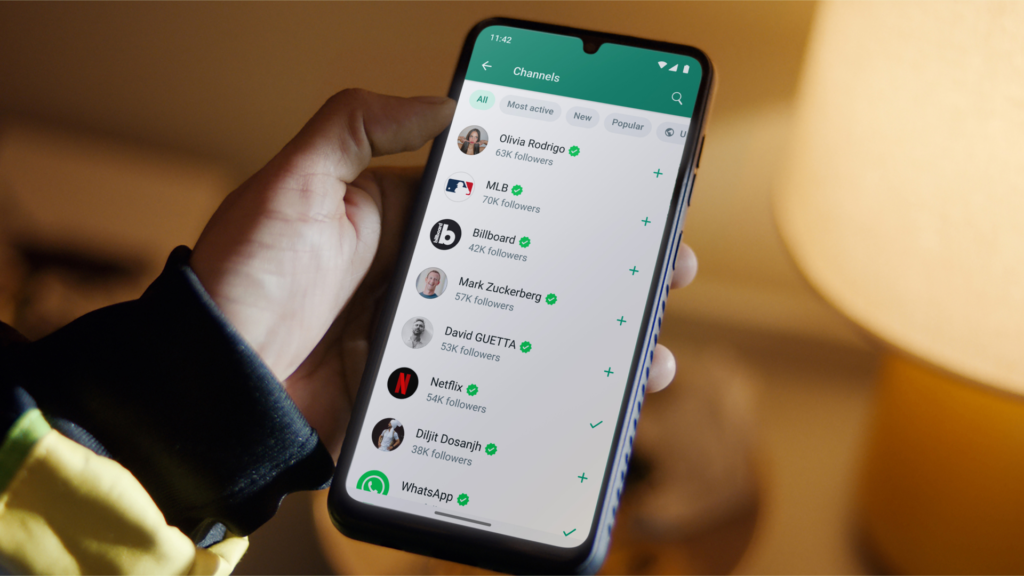Tech
Understanding the Proposed ICT Bill 2024
Published
2 years agoon

The Ministry of Information and Communication Technology has proposed the Information and Communications Technology Authority Bill, 2024. This legislation aims to establish the Information and Communications Technology Authority (ICTA) as a statutory entity, superseding the existing ICT Authority. The bill outlines comprehensive measures to enhance ICT services’ security, efficiency, and integration across the public sector and the broader economy.
The Cabinet Secretary for ICT, Eliud Owalo, has introduced a bill that aims to register and license ICT practitioners within the country to regulate the industry. The bill also seeks to standardize the ICT sector by ensuring the provision of secure, proficient, and high-performing ICT services.
What is the ICT Bill 2024?
The ICT Authority Bill, of 2024, aims to establish the Information and Communications Technology Authority (ICTA) as a statutory entity in Kenya. This bill seeks to enhance the provision, security, efficiency, and integration of ICT services within the public sector.
Here is a breakdown of what the bill entails:
Objectives and Principles
The primary objectives of the ICT Bill are to:
- Promote the provision of secure, efficient, and effective ICT resources.
- Standardize ICT services and infrastructure.
- Integrate ICT in the delivery of public services.
The bill is underpinned by principles that emphasize inclusive access, cost-effectiveness, fostering innovation, and ensuring that ICT infrastructure and services are flexible, adaptable, and interoperable.
Establishment and Functions of ICT Authority
The ICT Authority (ICTA) will be established as a corporate body with perpetual succession, capable of suing and being sued, managing property, and entering into contracts. Its key functions include:
- Designing, implementing, and managing national ICT infrastructure.
- Formulating and enforcing ICT codes and standards.
- Promoting digital literacy and ICT skill development.
- Accrediting ICT service providers.
- Implementing security measures and monitoring potential cybersecurity threats.
Impact of the Bill on the IT Industry
According to the proposed legislation, ICT practitioners and service providers must register with the designated authority to operate within the country. Accreditation requires payment of a fee and annual license renewal. It’s important to note that only those licensed by the authority will be legally permitted to work in the field once the bill becomes law.
The bill aims to eliminate practitioners lacking the necessary qualifications for licensing, amidst declining service delivery. This may deter many from entering the field. Although the bill could enhance service efficiency, the disadvantages seem to surpass its intended purpose.
A significant amendment in the bill is the elimination of the university degree requirement for licensing, a contentious point in the ICT Bill 2020. The 2024 bill stipulates that applicants must possess the “minimum technical qualifications,” along with the necessary experience and skills as prescribed by the Authority.
Should this bill be enacted, ICT professionals will require accreditation and licensing, a process that will classify them based on qualifications and skills. ICT service providers will also need to demonstrate experience in a specific work category and possess the necessary ICT resources for that category.
Licensing and categorizing practitioners may hinder the dynamic nature of ICT, a field that individuals can enter without formal training. Young tech enthusiasts, recent graduates, and aspiring professionals may find themselves deprived of opportunities to gain practical experience in the field.
Urge for Public Participation
Kenyans in the IT industry raised a public outcry after the Finance Bill was brought to the public raising concerns of dubious taxes and levies and limiting resources for the foreseeable future. Recently, an Addendum from the Ministry of Information, Communications & The Digital Economy was posted on MyGov weekly newspaper indicating that the bill is closely becoming a reality.

Remember to submit your comments in the emails provided on the bill; ictabill@icta.go.ke and copy to legal@moict.go.ke
If you are doubting the impact your commentary will make, remember the proposed Road Maintenance Levy review and how feedback from us, Kenyans impacted that decision. It’s important your voice is heard.
Despite these intentions, the bill continues to face resistance from the ICT community, concerned about the potential impact on professionals and the industry’s accessibility. Roger Taracha, an engineering leader, fintech and sound tech invites you to a space on X to discuss this ICT bill and a wide range of topics about the industry this Friday 12th July at 7pm. They will have all ICT stakeholders in Kenya—government, private sector, and individuals— participating. Their goal is to gather and submit comprehensive feedback to the government. Link here
You may like


“Zoza”: A Story of Loyalty, Betrayal, and Redemption


Spotify Has Quietly Hiked Prices in Kenya


A Journey of Self-Discovery: Book Review of Educated by Tara Westover


Infinix’s Hot Launch; The All New Hot 50 Series is Here


Walker Town Presents A Star-Studded Lineup Featuring Lauryn Hill, Nyashinski And Rema


A Woman of Firsts by Edna Adan: A Story That Will Empower You To Face That Scary Decision You’ve Always Wanted To

Spotify, the worldwide music streaming giant, has unexpectedly raised its subscription prices in Kenya. This change impacts all subscription levels, ranging from the economical Premium Mini to the extensive Family plan.
Spotify has just announced that it will raise the prices across all its subscription tiers in Kenya. This increase reflects how much one will have to pay to access premium features of the music streaming platform, with a new price change that applies to several user plans. This move is part of a wider trend within the streaming industry, where globally, these platforms inflate their prices in response to inflation and increased operational costs. Beginning today, users in Kenya will pay more to listen to their favorite music streaming services as Spotify continues to add more features and music to the platform.
The prices in Kenya have risen by 13.3 percent to 40.8 percent depending on the particular subscription. The wide range shows that some plans only have a moderate adjustment, while others see substantial rises. That is to say, many users are likely reviewing their current subscriptions or their more financially apt tiers. Specific reasons for these particular percentage increases have not been discussed, but this shows the platform’s intention: keeping profitability with competitive services.
Amongst the lot of subscription options, Premium Mini received the highest increase in percentage terms. The plan, previously the most affordable that gave access to Spotify’s premium features for either a day or a week, is now one of the relatively dearer options compared to other tiers. This steep increase may particularly affect users who rely on short-term premium access for occasional use and encourage them to either upgrade to longer-term plans or switch to other streaming platforms.
Here’s a comprehensive look at how Spotify’s prices have changed for Kenyan subscribers:
| Plan | Old Price | New Price | Increase | Percentage Increase |
|---|---|---|---|---|
| Premium Mini (1 week) | KES 49 | KES 69 | KES 20 | 40.8% |
| Premium Individual (monthly) | KES 299 | KES 339 | KES 40 | 13.4% |
| Premium Student (monthly) | KES 149 | KES 169 | KES 20 | 13.4% |
| Premium Duo (monthly) | KES 389 | KES 439 | KES 50 | 12.9% |
| Premium Family (monthly) | KES 479 | KES 549 | KES 70 | 14.6% |
- Premium Mini:The most economical choice experienced the largest percentage rise, at 40.8%. Such a substantial increase could affect users who depend on weekly subscriptions and are mindful of their budgets.
- Premium Individual and Student: Both plans saw a 13.4% increase. Although the absolute increase for students is smaller, the percentage rise is the same as that of the individual plan.
- Premium Duo:This couples’ plan experienced the smallest percentage increase at 12.9%, potentially rendering it a more appealing option for couples aiming to save.
- Premium Family: The price of the most expensive plan rose by 14.6%, potentially impacting households dependent on shared accounts.
For individuals seeking to optimize value, the Duo and Family plans may provide greater cost-effectiveness for those who are eligible. Students are advised to keep their verification current to maintain access to reduced rates.
Tech
Infinix’s Hot Launch; The All New Hot 50 Series is Here
Published
1 year agoon
September 27, 2024
Over the last couple of months, Infinix has been making waves in the smartphone market, and their recent attempt at solidifying this move looks set to serve Kenyan consumers as the smartphone manufacturer launches their latest series of budget-friendly gadgets, and oh are they something.
The newly launched budget phone is the Infinix Hot 50i with functional elements users on a tight budget will find quite appealing. The budget-friendly market is where real competition exists if you ask me. Here’s whats on paper so far.
Infinix Hot 50i

The Infinix Hot 50i, part of the same Hot 50 series, brings its own set of features, which is powered by the MediaTek Helio G81, which is paired with 4GB of RAM.
However, this RAM can be expanded to 8GB, providing users with more flexibility depending on their usage requirements. This model offers similar performance in day-to-day tasks but at a more affordable price point.
Infinix Hot 50i Specs
- Display: A large 6.7-inch IPS display with a resolution of 720 x 1600 pixels and 120Hz refresh rate.
- Processor: Powered by the MediaTek Helio G81 processor, for smooth performance for everyday tasks and gaming.
- RAM and Storage: Available in configurations of 4GB or 6GB RAM, which can be virtually extended up to 8GB. The device also boasts a generous internal storage capacity of 256GB.
- Camera System: 48MP rear camera and an 8MP front camera for selfies.
- Battery Life: 5000mAh battery that supports 18W fast charging.
- Audio: Dual DTS speakers designed to enhance sound quality, making it ideal for music lovers and media consumers.
- Operating System: Runs on XOS based on Android 14, providing a user-friendly interface with various customization options.
- Additional Features: A side-mounted fingerprint sensor for security, a USB Type-C charging port, and TÜV’s 48-month performance certification for long-term reliability.
Infinix Hot 50i Pricing
The Hot 50i is available in the Kenyan market at a price of KES 13,699, making it an attractive option for those looking for an affordable, yet capable smartphone.
The phone comes three attractive color options: Sleek Black, Sage Green, and Titanium Grey.
It will be widely available in retail stores after September 30th. Stay tuned to watch us review these units and give you a hands-on review of whether this should be your next phone or why not.
Tech
New WhatsApp Feature Lets You Mention Contacts In Status Updates
Published
1 year agoon
September 19, 2024
WhatsApp has recently added a new feature to its Status updates, allowing users to tag contacts directly.

Currently available on Android for users with beta version 2.24.20.3 or higher, this update introduces a @ button that lets you mention specific contacts in your Status.
Once tagged, they receive both a notification and a message, ensuring they won’t miss your update. Tagged contacts can also reshare your Status, but only they will see their mention, preserving privacy.
Unlike Instagram, WhatsApp keeps the identity of the original Status creator hidden when tagged contacts reshare it. One key thing to note is that if you’ve blocked someone from viewing your Status, they can still see it if tagged using this feature.
This update, along with WhatsApp’s other hidden features, aims to make interactions more personal and dynamic on the platform.

Meghan Markle Delays Netflix Series Premiere Due To LA Wildfires

Satire Meets Culture On New Comedy Series ‘A Very Kenyan Sketch Show’

Netflix Set To Debut A Gripping Kenyan Drama Series ‘Mo-Faya’
Trending

 Adulting 1013 years ago
Adulting 1013 years agoPersonal Brand Online (Part 2)

 Adulting 1013 years ago
Adulting 1013 years agoPersonal Branding (Part 1)

 A Chat With3 years ago
A Chat With3 years agoA chat with DJ Elye (the sunday skool drop out)

 A Chat With5 years ago
A Chat With5 years agoA MOMENT WITH SHARON WENDO, FOUNDER OF EPICA JEWELLERY

 Health1 year ago
Health1 year agoLet’s Get Mind, Body and Spirit Aligned!

 Adulting 1012 years ago
Adulting 1012 years agoRediscovering Yourself Through Solo Travel: The Mental Health Benefits of Venturing Alone

 Entertainment3 years ago
Entertainment3 years agoKenyan Movie Disconnect: The Wedding Planner Is Now Streaming On Netflix

 A Chat With3 years ago
A Chat With3 years agoFind out why ‘mutura is not a street food’ as Wanjira Puts it!
































